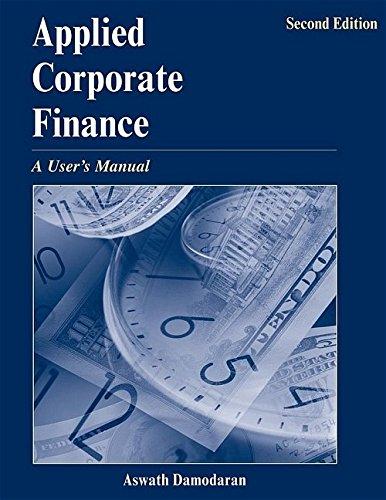Question
summarise the authors argument and 1 interesting or surprising things you learned from the text (i.e., what was most interesting, what made you think about
summarise the authors argument and 1 interesting or surprising things you learned from the text (i.e., what was most interesting, what made you think about things in a new way, did you learn a new perspective?);
Criminology is Governmental
Let me return to a question I raised previously. Criminology's eclecticism and the absence of any object of analysis that it can call its own, make its emergence as a 'discipline' appear puzzling. How did this disparate bundle of policy-related inquiries come to acquire the status of a distinct academic subject? How did criminology achieve its current position in the academic field and in the institutions of higher education? The solution to this puzzle lies, I believe, in criminology's external clients (which is to say government agencies and criminal justice institutions) and its perceived criminology's place in the academic field 305 ability to further governmental interests by bringing its knowledge to bear on crime policy and the practice of criminal justice (Foucault 1977; Garland 1992; Abbott 2001: 69, 134). Criminology's basic organizing principle is the empirical study of crime and its controlwhich is to say, the study of a legally-defined entity and a state-directed practice. In contrast to the sciences and fully-constituted academic disciplines, criminology's object of study is not a scientifically-specified entity but instead a state-defined social problem and the set of state and non-state practices through which that state-defined problem is managed. As a consequence, criminol- ogy is intimately (at the epistemological level) and directly (at the social level) tied into government (Garland 2002). This governmental dimension was especially obvious in the early years when the subject flourished in the prison, the courtroom, and the juvenile justice halla flourishing that was directly encouraged by government support and sponsorship (Garland 1988, 2002). Criminology's subsequent location in the university has obscured this knowledge-power link to some extent and alleviated some of the problems that stem from being too identified with government, but the linkage and the problems remain nonetheless (Garland 1992). Criminology's material support and social status continue to rest in large part upon its perceived utility and value for government. Even within the academy, university authorities and administrators value the subject as much for its ability to attract research funds and student numbers as for its distinguished academic achievements. It is therefore no surprise that criminologywith its ability to attract large numbers of undergraduates and government research grants has flourished in recent years when universities have suffered budgetary reductions and have been under pressure to be more 'relevant' and 'vocational'. IV Criminology's dual commitment to government and to the academy, to policy and to science, sets up a series of recurring problems and tensions for criminology and its practitioners. My argument is that as criminology becomes institutionally and intellectually more autonomous, these tensions will tend to intensify and become increasingly difficult to manage.
Step by Step Solution
There are 3 Steps involved in it
Step: 1

Get Instant Access with AI-Powered Solutions
See step-by-step solutions with expert insights and AI powered tools for academic success
Step: 2

Step: 3

Ace Your Homework with AI
Get the answers you need in no time with our AI-driven, step-by-step assistance
Get Started


